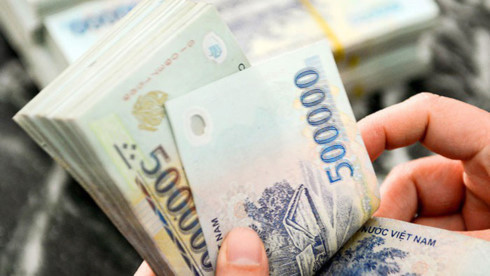 |
With the escalating trade tensions, the global financial and monetary market is moving into a period of increasing risks during the remainder of the year. If the US-China trade frictions remain unresolved, fluctuations could continue to shake the financial market.
China has depreciated its currency to 7.04 yuan to 1 USD in an attempt to curb the negative impacts caused by the US tariffs levied on Chinese exports to the US.
A currency war could break out if economies continue to devalue their currency and lower interest rates. This would drag them into stagnation and then leading to a global crisis.
If yuan depreciation is kept on, it will put additional pressures on the Vietnamese dong (VND), making Chinese exports to Vietnam becoming cheaper, and worsening the latter’s trade deficit with the neighboring country.
Nguyen Tri Hieu, a financial expert, assumes that the devaluation of VND should stand at a rate of 3 per cent. Indeed, the level of VND devaluation remains moderate, meaning that there is plenty of room to depreciate VND in order to negate adverse impacts sourced by yuan depreciation.
However, the depreciation of VND could harm the local securities market as it could raise concerns among investors.
Since the beginning of the year, the financial market has absorbed a large amount of foreign capital inflows. If VND is devalued deeply, this will have a widespread influence on investment activities.
"There has been no phenomenon of moving cash flows from the securities or banking sectors to the gold market. But high gold prices may result in speculations and an investment shift”, Hieu noted.
Vietnam is regarded as a beneficiary from the US-China trade war. Indeed, many investors have planned to move their production facilities from China to Southeast Asian countries, including Vietnam. Tight control should be applied to stop the possibility that the production facilities ship Chinese goods to the Vietnamese market and have them relabeled as made-in-Vietnam products before being exported to the US.
Hieu suggested that amid soaring FDI inflows into the Vietnamese market, the Government should become more selective when choosing such investments in accordance with the overall economic development strategy.
 Ongoing trade tensions between the US and China have caused an array of adverse impacts on global gold, securities, and currency transactions, with the Vietnamese market not an exception.
Ongoing trade tensions between the US and China have caused an array of adverse impacts on global gold, securities, and currency transactions, with the Vietnamese market not an exception.